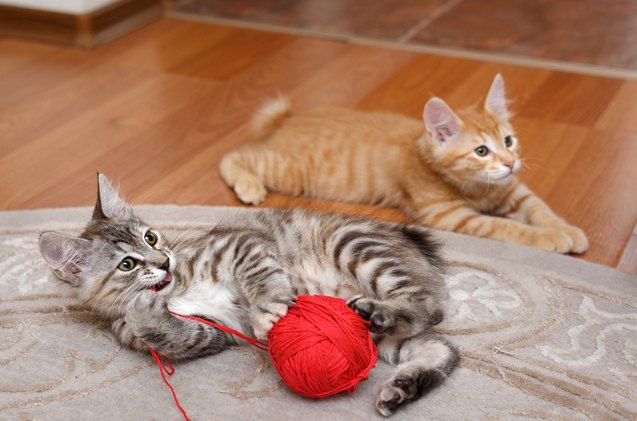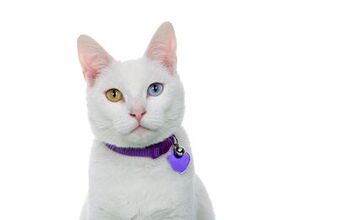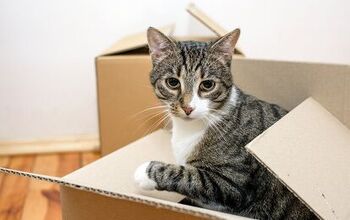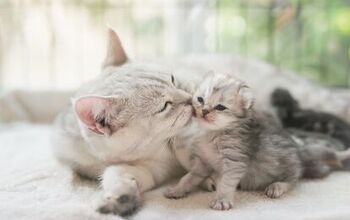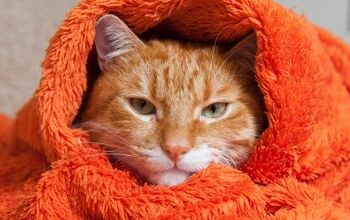What Is Feline Group Scent?

Your cat has a sensitive sense of smell. According to Pam Johnson-Bennett, cats’ nostrils have roughly 200 million scent receptors, while humans only have roughly 5 million. This means that your kitty can smell things that you can’t, and he’s always using his nose to assess the environment and identify other felines.
What’s also interesting about felines is the fact that they have what’s known as group scent. Let’s talk about what group scent is and how your cat uses it daily.
What Is Group Scent?
Group scent is established amongst two or more felines, so if you have a multi-cat household, there will be a group scent. This communal scent within your cats’ environment will provide them with a sense of comfort, and they’ll develop the scent by rubbing against one another, grooming each other, and head bunting.
Related: How to Introduce Your Cat to a New Dog
As your cats scent one another, they create the group scent, or a scent for their feline community. But the act of rubbing against one another to share their scents is also a sign of affection. In fact, as the common scent is created, the bond between friendly felines becomes stronger, and more peace can be enjoyed amongst felines who don’t get along so well.
How You Can Use Group Scent to Create a Happy Home
In a multi-cat household with kitties who don’t get along, and who don’t rub against each other or mutually groom one another, a group scent would be lacking. The cats might just learn to coexist without forming a bond, or they may prefer being solitary. They might even display hostile behaviors towards each other, or they may end up urine marking or claw marking their environment.
If this is the case in your home, you can help create a group scent and perhaps help your kitties get along. Do this by brushing all of your cats every day using the same brush on all of them. Of course, every cat should be calm, should want to be brushed, and should be fine with smelling another kitty’s scent on the brush. In this way, you’ll create a social bond between the cats by distributing their scent to one another for them. The cats may end up feeling like they belong to a group, and this could lead to positive social interaction.
Related: 6 Easy Ways to Make Your Cat Happy
Just make sure that you brush your cats along the rib cage, shoulders, neck, and head, as these are areas where they retain their group scent. Always utilize the same brush, and don’t throw away the fur that’s collected between brushings. Obviously, you’ll remove the fur when the brush is full, but keep it there as you groom one cat and then the other in order to spread the scent out.
Prior to brushing your cat, though, allow him to smell the brush, and proceed only if the cat’s reaction is calm. Rotate the order of the cats that are brushed so that they all share their scents with each other.
A Word of Caution
Although some experts recommend the brushing method above, others, such as Pam Johnson-Bennett, disagree that this is a good way to establish group scent because the cats have no way to escape the scent that you’re putting on them. As a result, a cat can become even more stressed or aggressive.
If you find that sharing the same brush amongst your cats doesn’t work and it’s making even just one of your kitties unhappy, try a different approach that allows your pets to move away from a scent that they don’t like.
For example, you can take a sock and rub it on one of your cats and then leave it in another cat’s area. That kitty may decide to sniff the sock and stick around, or he may choose to retreat. Whenever your pet does move towards the sock, you can incorporate clicker training and reward the behavior. But if your kitty backs away, he may just need more time, so be patient and work at his pace.
A feline’s sense of smell plays an important role in social behavior. Because your kitty’s nose is able to pick up on scents a lot more strongly than you can, keep that in mind when you consider using perfumes, air fresheners, scented detergents and cleaners, or scented litter. Group scent, combined with a nose that isn’t irritated by harsh fragrances, will help keep all of your cats happy.

Lisa Selvaggio is a freelance writer and editor, and our resident cats-pert, with certifications in pet nutrition and pet first aid. She enjoys producing content that helps people understand animals better so they can give their pets a safe and happy home.
More by Lisa Selvaggio



